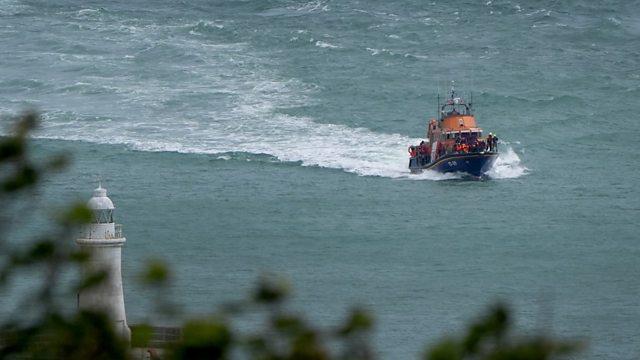The UK government is set to resume the return of small boats to France within days, following the European UnionŌĆÖs recent approval of the plan. This development marks a significant step in efforts to stem the flow of migrants crossing the English Channel, as officials seek to reinforce border controls and manage migration more effectively. The move comes amid ongoing diplomatic discussions between London and Paris to tackle the complex challenges posed by irregular migration in the Channel corridor.
UK prepares to resume small boat returns after EU approval
The UK government is gearing up to recommence the controversial practice of returning small boats crossing the Channel back to France, following a green light from the European Union. This development marks a significant shift in the handling of migration across the busy waterway, as both governments seek to stem the flow of irregular crossings while navigating complex legal and diplomatic challenges.
Officials have highlighted several key measures accompanying the restart to ensure the process is effective and humane:
- Enhanced coordination between UK and French border agencies to streamline operations.
- Improved safety protocols to protect individuals during interception and transfer.
- Clear timelines aiming to return small boats within hours of detection.
| Aspect | Details |
|---|---|
| Expected Start | Within days |
| Return Methods | Small crafts escorted/directed by authorities |
| EU’s Role | Approval of legality & cooperation framework |
| UK Objective | Reduce illegal crossings & increase deterrence |
Legal and diplomatic implications of the renewed returns agreement
The resumption of the small boats returns agreement between the UK and France carries significant legal complexities. At its core, the deal hinges on mutual recognition of asylum claims and the enforcement of expulsion notices, raising questions about compliance with international refugee law and human rights obligations. Both governments must navigate the delicate balance between enforcing border controls and ensuring that the rights of vulnerable individualsŌĆöespecially asylum seekersŌĆöare upheld. The renewed agreement also necessitates robust administrative cooperation to verify identities and process claims swiftly, reducing the risk of legal challenges that could delay returns.
Diplomatically, this move signals a reinvigoration of bilateral relations post-Brexit, showcasing a pragmatic approach to shared border management. However, it also places both nations under intense scrutiny from human rights organizations and the wider EU community. Key diplomatic considerations include:
- Maintaining transparency: Ensuring open communication channels to address any arising legal concerns.
- Cross-border coordination: Strengthening joint patrolling and information-sharing mechanisms.
- Public perception: Managing domestic and international reactions to the policyŌĆÖs humanitarian impact.
| Aspect | Legal Challenge | Diplomatic Focus |
|---|---|---|
| Identification Verification | Avoiding wrongful deportations | Enhanced data sharing |
| Asylum Claims | Ensuring fair hearings | Unified procedural standards |
| Human Rights Compliance | Meeting UN obligations | International image management |
Operational challenges and coordination between UK and French authorities
The initiation of small boat returns from the UK to France involves navigating a complex web of logistical and regulatory obstacles. Both nations must align on operational procedures to ensure the safe and humane handling of migrants during the return process. This includes establishing agreed-upon standards for identification checks, transportation protocols, and health assessments. Such cooperation is critical to prevent humanitarian concerns and maintain legal compliance under international asylum laws.
Effective coordination hinges on continuous communication and resource sharing across multiple agencies, including border enforcement, maritime rescue teams, and immigration authorities. Key challenges include:
- Tight scheduling: Managing return flights and sea transfers to minimize delays and overcrowding.
- Data exchange: Real-time sharing of migrant information to streamline processing.
- Security checks: Coordinated risk assessments to detect potential threats while respecting human rights.
| Authority | Main Role | Operational Focus |
|---|---|---|
| UK Border Force | Processing returns | Migrant identification, transport logistics |
| French Maritime Police | Coastal interception | Safe transfer, rescue missions |
| Immigration Services | Asylum assessment | Legal checks, health screenings |
Recommendations for ensuring humane treatment and efficient processing of migrants
To uphold the dignity and rights of migrants during the return process, authorities must implement a robust framework emphasizing transparency, timely communication, and respect for legal safeguards. Clear information dissemination about rights and procedures can mitigate confusion and anxiety among individuals awaiting return. Additionally, establishing accessible legal assistance is crucial to ensure that migrants understand their options and can challenge decisions where applicable.
Efficiency in processing should be balanced with humanitarian considerations by adopting best practices such as:
- Prioritizing vulnerable cases including children and those with health conditions
- Ensuring proper training for border and immigration officers on cultural sensitivity
- Providing adequate facilities that meet health and safety standards
- Coordinating closely with NGOs and international bodies for oversight
| Key Element | Impact |
|---|---|
| Legal Support Access | Empowers migrants, reduces errors |
| Sensitive Processing Training | Improves treatment, reduces complaints |
| Health-Conscious Facilities | Protects wellbeing, complies with standards |
Key Takeaways
As the UK prepares to resume the return of small boats to France within days, this development marks a significant shift in managing cross-Channel migration following the EUŌĆÖs recent approval. The implementation of these returns aims to curb irregular crossings and enhance cooperation between the two countries. However, the approach will continue to face scrutiny from human rights groups and political stakeholders, as authorities balance enforcement with humanitarian concerns. The coming weeks will be critical in assessing the efficacy and impact of this renewed policy in addressing the ongoing challenges of migration across the Channel.




